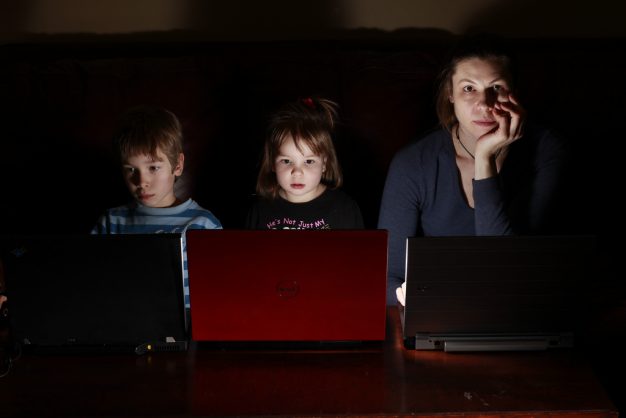
Safer Internet Day 2023 – putting children’s needs first
Eurochild, the EU’s foremost child rights umbrella organisation, is calling for a truly ‘child rights approach’ to the protection of youngsters’ rights online.
On the occasion of Safer Internet Day (7 February), the organisation said it believed that it was the responsibility of European institutions to prioritise the best interests of children – including giving them a say on safety issues.
“Children should be able to enjoy online the same rights they already hold offline…unfortunately, this is not a reality in Europe, despite a shift in lifestyle that sees children live their lives online and offline indistinguishably,” it says.
With at least one in five children in Europe affected by sexual abuse, of whom one in every seven victims is under 6 years, now is the time more than ever to tackle the situation. Under the current interim regulation valid until end of summer 2024, says Eurochild, tech companies have been able to voluntarily detect child abuse material with little supervision or guidance and always having the possibility to opt out.
‘Companies legally required to take action’
In addition, the European Commission plans to continue working against child sexual abuse and exploitation with its proposed EU Legislation to Prevent and Combat Child Sexual Abuse. Eurochild said it ‘welcomes the clear and standardised procedure this proposal brings to detect, remove, and report child sexual exploitation and abuse’.
Companies will now be legally required to take action against child sexual abuse material, while the creation of an EU Centre to validate detection technologies, coordination, and best practices is, adds Eurochild, ‘proof of the EU’s high commitment to a long-term solution’.
Safer Internet Day (SID) is an annual flagship campaign to raise awareness of the importance of staying safe online. With a theme of ‘Together for a better internet’, organisers have called upon all stakeholders to join together to make the internet a better and safer place for all – especially young people.
Hans Martens, Head of Digital Citizenship at European Schoolnet and Coordinator of the Insafe network, which is behind SID, said: “While the unprecedented challenges posed by the pandemic are seemingly behind us, the last few years have shown our increased reliance on digital technologies, and it appears that this tendency won’t revert to the pre-pandemic situation, hinting at a progressively hybrid scenario in the future, with the coexistence and mutual interaction between the physical and online worlds.
‘Last few years has shown our reliance on digital’
“In this context, striving for a better internet for children and young people continues to be a priority for their safety, their wellbeing, and their personal development. We hope that the 20th anniversary of Safer Internet Day will be a reminder and opportunity for everyone to make a positive difference to the online world, on the day itself and throughout the year,” added Martens.
Eurochild, meanwhile, has said while the current proposal requires detection technologies to be ‘the least privacy-intrusive’, it argues that any consideration of proportionality must put the child’s best interests at the centre, especially in complex encrypted environments’.
It calls for:
- A child rights approach to the EU regulation which puts the best interests of the child at the centre, including children’s right to have a say on offline and online safety.
- A holistic approach to child protection that recognises the importance of the interlinkages with national child protection systems.
- A swift implementation of the Digital Services Act (DSA) – and most importantly article 28 – and the General Data Protection Regulation (GDPR) provisions, to uphold children’s right to privacy online.
- A swift drafting and adoption of an EU Code of conduct on age-appropriate design.
- An EU Centre that promotes child-centred and -safe design, invests in the development of safer technologies to detect and remove CSAM and integrates a child-rights-based approach, involving child rights experts and children themselves.
“The EU must be aware of the further damage any intervention affecting encryption could have on children themselves. Therefore, more investment in innovation is key to refine existing technological solutions and build new technologies that combat child sexual abuse in an effective but safe manner.
‘Essential that children are involved in developing legislation
“Provisions must be expanded to include proactive technologies that help identifying new CSAM and grooming. Technology must also be part of the solution,” it added.
Eurochild believes that children are not only victims in need of protection, but rights’ holders in their own right. It is therefore essential that children are directly involved in the development of the proposed legislation.
“The responsibility of a ‘safe’ and ‘wise’ use of online products should not fall on children. Instead, online platforms and services must be designed in a way that it is safe for children. Eurochild commends the horizontal set of obligations foreseen in the EU’s proposal regarding risk assessments and mitigation to prevent online features being used for child sexual abuse, hence supporting safety by design.”




